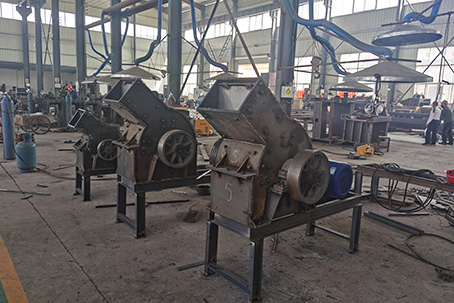
In the pursuit of sustainable development and environmental protection, Thailand has taken a significant step forward with its innovative cobblestone crusher technology. This groundbreaking innovation is designed to transform coal gangue, a waste product often discarded as useless, into valuable resources that can be used in various industries. The process not only reduces waste but also creates economic opportunities and promotes environmental conservation.
Coal gangue, also known as coal spoil or culm, is a solid waste material left after the extraction and processing of coal. It is typically composed of clay, shale, sandstone, and other impurities mixed with coal. In the past, this material was considered worthless and was often disposed of in landfills or abandoned mines, posing significant environmental risks such as soil contamination and water pollution.
The Thai cobblestone crusher, however, changes this narrative by turning coal gangue into a valuable resource. The machine employs advanced crushing and screening technologies to break down the coal gangue into smaller particles. These particles are then sorted based on their size and composition, allowing for the separation of useful materials such as minerals and metals.
One of the key benefits of this process is the recovery of valuable materials that can be sold or reused in various industries. For example, the separated minerals can be used in the production of construction materials, while the metals can be recycled and repurposed for manufacturing purposes. This not only creates additional revenue streams for businesses but also reduces the demand for new raw materials, contributing to the conservation of natural resources.

Moreover, the cobblestone crusher technology helps to reduce the environmental impact of coal mining by minimizing waste disposal. Instead of dumping coal gangue in landfills or abandoned mines, it can now be processed and transformed into useful materials. This reduces the risk of soil contamination and water pollution, promoting a cleaner and healthier environment.
In addition to its environmental and economic benefits, the cobblestone crusher technology also supports Thailand's commitment to sustainable development. By promoting the recycling and reuse of waste materials, the country is taking steps towards reducing its carbon footprint and achieving its climate change mitigation goals.
Furthermore, this innovation can serve as a model for other countries looking to address similar challenges in their coal mining industries. By adopting the cobblestone crusher technology, they too can transform coal gangue into valuable resources, creating economic opportunities while protecting the environment.
In conclusion, Thailand's cobblestone crusher innovation represents a significant step forward in the pursuit of sustainable development and environmental protection. By transforming coal gangue into valuable resources, this technology not only reduces waste but also creates economic opportunities and promotes environmental conservation. As more countries look to address the challenges posed by coal mining, the cobblestone crusher offers a promising solution that can help achieve a more sustainable future.